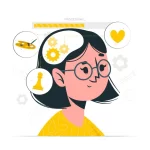Lawrence Kohlberg
Lawrence Kohlberg was an American psychologist born in 1927, best known for his theory of moral development. He expanded on the work of Jean Piaget to develop a theory of stages of moral reasoning. Kohlberg proposed that moral development occurs in a series of stages, each building upon the previous one, and that individuals progress through these stages in a fixed order.
Kohlberg’s theory outlines six stages of moral development, grouped into three levels:
- Pre-conventional level: a. Stage 1: Obedience and punishment orientation b. Stage 2: Individualism and exchange
- Conventional level: a. Stage 3: Good interpersonal relationships b. Stage 4: Maintaining the social order
- Post-conventional level: a. Stage 5: Social contract and individual rights b. Stage 6: Universal principles
According to Kohlberg, individuals may not reach the highest stage of moral development, and moral reasoning may vary depending on cultural, social, and personal factors. Kohlberg’s theory has been influential in the fields of psychology, education, and ethics.
Biography of Lawrence Kohlberg
Birth of Lawrence Kohlberg
Lawrence Kohlberg was born on October 25, 1927.
Early life of Lawrence Kohlberg
Lawrence Kohlberg was born on October 25, 1927, in Bronxville, New York, USA. He was the second of four children born to Alfred Kohlberg, a wealthy silk merchant, and his wife, Charlotte Albrecht Kohlberg. Kohlberg attended the Phillips Academy in Andover, Massachusetts, where he became interested in philosophy and ethics.
During his undergraduate studies at the University of Chicago, Kohlberg worked with the psychologist David Riesman. It was during this time that he became interested in moral development, which would become the focus of his life’s work. He later pursued graduate studies in psychology at the University of Chicago, earning his Ph.D. in 1958.
Kohlberg’s early life experiences, combined with his academic pursuits and mentorship, laid the groundwork for his groundbreaking research on moral development and the development of his theory of moral reasoning.
Education of Lawrence Kohlberg
Lawrence Kohlberg received his early education at the Phillips Academy in Andover, Massachusetts. Following his secondary education, he attended the University of Chicago for his undergraduate studies, where he developed an interest in philosophy and ethics.
He continued his education at the University of Chicago for graduate studies in psychology, earning his Ph.D. in psychology in 1958. It was during his time at the University of Chicago that he began his seminal work on moral development, which would become the focus of his academic career.
Relationship of Lawrence Kohlberg with his parents
Lawrence Kohlberg’s relationship with his parents, Alfred Kohlberg and Charlotte Albrecht Kohlberg, is not extensively documented in public records or academic literature. However, it’s known that he came from a relatively affluent family, with his father being a silk merchant.
Like many individuals, Kohlberg’s relationship with his parents likely influenced his personal and intellectual development to some extent. However, specific details about the nature of his relationship with them are not widely available. Kohlberg’s focus on moral development and ethical reasoning could have been influenced by his upbringing, but the extent to which this occurred is speculative.
Marital life of Lawrence Kohlberg
Lawrence Kohlberg was married twice in his lifetime. His first marriage was to Lucille Stigberg, with whom he had two children, a son named David and a daughter named Ann. The marriage ended in divorce.
Kohlberg’s second marriage was to Consuelo Antonia Grannis, also known as Tosca Grannis, a clinical psychologist. They remained married until Kohlberg’s death in 1987.
During his lifetime, Kohlberg was known to be intensely focused on his work, particularly his research on moral development. While there isn’t extensive publicly available information on his personal life, it’s evident that his contributions to psychology and education have left a lasting impact.
Social life of Lawrence Kohlberg
Lawrence Kohlberg was primarily known for his academic and professional endeavors, particularly his research on moral development. As a result, information about his social life outside of his work is limited. However, it’s known that Kohlberg had relationships with colleagues, students, and collaborators in the field of psychology.
Kohlberg was deeply engaged in academic circles and was known to interact with fellow researchers, educators, and intellectuals. He often participated in conferences, seminars, and academic gatherings where he presented his research and engaged in discussions with other scholars.
While Kohlberg’s dedication to his work was a significant aspect of his life, it’s likely that he also had personal relationships and social interactions outside of academia. However, specific details about his social life are not extensively documented in publicly available sources.
Followers of Lawrence Kohlberg
Lawrence Kohlberg’s work on moral development and his theory of moral reasoning has had a significant impact on psychology, education, and ethics. As a result, he has garnered a considerable number of followers, including researchers, educators, psychologists, and professionals in related fields.
Many scholars and practitioners in the fields of developmental psychology, moral psychology, and educational psychology have been influenced by Kohlberg’s ideas and have built upon his work in their own research and practice. His theory of moral development, with its stages of moral reasoning, continues to be studied and applied in various contexts around the world.
While Kohlberg’s work has also faced criticism and alternative theories have emerged, his influence on the study of moral development remains substantial. Followers of Kohlberg’s work continue to explore and expand upon his ideas, contributing to ongoing debates and advancements in the understanding of moral reasoning and development.
Clinical practice of Lawrence Kohlberg
Lawrence Kohlberg was primarily known for his research and theoretical contributions in the fields of psychology, particularly in moral development. He did not engage in clinical practice in the traditional sense of providing therapy or counseling to individuals.
Kohlberg’s work focused on understanding the development of moral reasoning and ethical decision-making, particularly in children and adolescents. His research involved the use of hypothetical moral dilemmas and interviews to explore how individuals reasoned about moral issues and how their reasoning evolved over time.
While Kohlberg himself did not work as a clinician, his research has had implications for clinical psychology, particularly in understanding moral development and moral reasoning in individuals. Clinicians and therapists may draw upon Kohlberg’s theories and research findings to inform their work with clients, particularly in areas related to moral development, character education, and ethical decision-making.
Death of Lawrence Kohlberg
Lawrence Kohlberg passed away on January 19, 1987, at the age of 59. He died of a heart attack while on a trip to Trujillo, Honduras. Kohlberg’s death marked the end of a distinguished career marked by groundbreaking research in the field of developmental psychology, particularly in the area of moral development. Despite his relatively young age at the time of his death, Kohlberg’s contributions to psychology continue to be widely recognized and influential in academic and professional circles.
What were some significant events or experiences in Lawrence Kohlberg’s life that influenced his work?
Several significant events and experiences in Lawrence Kohlberg’s life influenced his work, particularly his research on moral development. Some of these include:
- Early education and exposure to philosophy: Kohlberg attended Phillips Academy in Andover, Massachusetts, where he developed an interest in philosophy and ethics. This early exposure likely sparked his interest in moral reasoning and set the foundation for his later work.
- Mentorship and collaboration: Kohlberg worked closely with psychologist David Riesman during his undergraduate studies at the University of Chicago. Riesman’s influence and guidance likely played a role in shaping Kohlberg’s research interests and approach to studying moral development.
- Graduate studies at the University of Chicago: Kohlberg pursued graduate studies in psychology at the University of Chicago, where he earned his Ph.D. His time at the university provided him with the academic and intellectual resources to delve deeper into the study of moral development.
- Development of the Moral Judgment Interview: One of Kohlberg’s significant contributions to psychology was the development of the Moral Judgment Interview, a method for assessing individuals’ moral reasoning. This innovative approach allowed him to study moral development in a systematic and rigorous manner.
- Cross-cultural research: Kohlberg conducted extensive cross-cultural research on moral development, which involved studying individuals from different cultural backgrounds and societies. This broadened his understanding of moral reasoning and contributed to the universality of his theory.
- Teaching and academic career: Kohlberg’s experiences as a teacher and academic likely influenced his research and theoretical perspectives. His interactions with students and colleagues provided him with insights into the complexities of moral development and the diversity of human experiences.
- Critiques and debates: Throughout his career, Kohlberg’s work faced criticism and scrutiny from various quarters. Engaging with these critiques and debates likely prompted him to refine and expand his theory of moral development, contributing to its ongoing development and evolution.
These experiences, among others, shaped Lawrence Kohlberg’s research trajectory and theoretical framework, leading to his influential contributions to the field of developmental psychology and moral development.
Ideas of Lawrence Kohlberg
Lawrence Kohlberg’s ideas primarily revolved around the development of moral reasoning and ethical decision-making. His work built upon the cognitive developmental framework proposed by Jean Piaget and extended it to the domain of morality. Some key ideas associated with Kohlberg include:
- Stages of Moral Development: Kohlberg proposed a theory of moral development consisting of six sequential stages, organized into three levels: pre-conventional, conventional, and post-conventional. Each stage represents a qualitatively different way of thinking about moral dilemmas, with higher stages indicating greater complexity and moral maturity.
- Moral Dilemmas and Moral Judgment Interview: Kohlberg used moral dilemmas, such as the Heinz dilemma, to assess individuals’ moral reasoning. He developed the Moral Judgment Interview, a structured interview technique, to explore the reasoning processes behind moral decisions.
- Universal Moral Principles: Kohlberg argued that there are universal moral principles that underlie moral reasoning across cultures. These principles include concepts such as justice, fairness, and respect for human dignity. According to Kohlberg, individuals progress through the stages of moral development as they internalize and apply these principles to their moral reasoning.
- Role of Reasoning and Perspective-Taking: Kohlberg emphasized the importance of reasoning and perspective-taking in moral development. He believed that individuals move through the stages of moral development by engaging in active reflection and dialogue, considering the perspectives of others, and evaluating the consequences of their actions.
- Cultural and Contextual Influences: While Kohlberg proposed a universal sequence of moral development, he acknowledged that cultural and contextual factors can influence the expression and manifestation of moral reasoning. He conducted cross-cultural research to explore how cultural differences might shape moral development.
- Critiques and Revisions: Kohlberg’s theory has faced criticism, particularly regarding its cultural specificity and gender bias. In response, some researchers have proposed revisions and alternative frameworks for understanding moral development. Kohlberg himself revised his theory over time, incorporating feedback and refining his conceptualizations.
Overall, Lawrence Kohlberg’s ideas have had a profound impact on the study of moral development, influencing fields such as psychology, education, and ethics. While his theory has generated debate and critique, it remains a foundational framework for understanding the complexities of moral reasoning and development.
Legacy of Lawrence Kohlberg
The legacy of Lawrence Kohlberg is multifaceted and enduring, with significant impacts across psychology, education, ethics, and related fields. Some aspects of his legacy include:
- Advancement of Moral Development Theory: Kohlberg’s theory of moral development, with its emphasis on the progression through distinct stages of moral reasoning, has provided a comprehensive framework for understanding how individuals develop ethical reasoning abilities. This theory has influenced subsequent research in developmental psychology and has served as a foundation for various educational and intervention programs aimed at promoting moral development.
- Educational Implications: Kohlberg’s ideas have had a profound impact on education, particularly in the development of curricula and pedagogical approaches that foster moral reasoning and character development in students. His emphasis on moral education and the cultivation of moral reasoning skills has informed practices in schools and educational institutions worldwide.
- Ethical Decision-Making: Kohlberg’s research has contributed to our understanding of ethical decision-making processes in various contexts, including business, law, medicine, and politics. His work has influenced discussions on ethical leadership, professional ethics, and moral reasoning in organizational settings.
- Cross-Cultural Research: Kohlberg’s cross-cultural studies of moral development have highlighted both universality and cultural variation in moral reasoning processes. His research has paved the way for further exploration of how cultural and contextual factors shape moral development, fostering a more nuanced understanding of morality across diverse cultural contexts.
- Influence on Psychology and Philosophy: Kohlberg’s work has had a lasting impact on the fields of psychology and philosophy, stimulating interdisciplinary dialogue and collaboration. His conceptualization of moral development as a cognitive process has bridged the gap between psychological theories of development and philosophical theories of ethics.
- Critique and Revision: While Kohlberg’s theory has faced criticism and scrutiny, particularly regarding its cultural specificity and gender bias, his willingness to engage with critiques and revise his theory over time reflects a commitment to scientific inquiry and intellectual rigor. This openness to critique has contributed to the ongoing refinement and evolution of theories of moral development.
Overall, Lawrence Kohlberg’s legacy extends far beyond his theoretical contributions, encompassing practical applications in education, ethics, and beyond. His work continues to inspire scholars, educators, and practitioners to explore the complexities of moral reasoning and to promote ethical decision-making in individuals and societies.
How Lawrence Kohlberg's work impact on modern society?
Lawrence Kohlberg’s work has had a significant impact on modern society in several ways:
- Education and Moral Development: Kohlberg’s theories have influenced educational practices worldwide, shaping curricula and pedagogical approaches aimed at fostering moral development in students. Schools often incorporate strategies to promote moral reasoning and ethical decision-making skills, based on Kohlberg’s framework.
- Ethical Leadership and Professionalism: Kohlberg’s research on moral development has implications for ethical leadership and professionalism in various fields, including business, law, medicine, and politics. His ideas have informed discussions on ethical decision-making, integrity, and social responsibility among leaders and professionals.
- Social Justice and Human Rights: Kohlberg’s emphasis on universal moral principles and the importance of fairness and justice has relevance for social justice movements and human rights advocacy. His work provides a theoretical foundation for promoting equality, dignity, and respect for human rights in society.
- Criminal Justice and Legal Systems: Kohlberg’s theories have been applied in the field of criminal justice and legal systems to understand moral reasoning and decision-making processes among individuals involved in legal proceedings. This understanding can inform sentencing, rehabilitation, and restorative justice practices.
- Cross-Cultural Understanding: Kohlberg’s cross-cultural research has contributed to a deeper understanding of cultural differences and similarities in moral reasoning. His work promotes cross-cultural dialogue and appreciation of diverse perspectives on morality, fostering mutual understanding and respect in an increasingly globalized world.
- Ethical Decision-Making in Technology: In the modern era, where technology plays a central role in society, Kohlberg’s theories have implications for ethical decision-making in technology development and use. Concepts such as privacy, data ethics, and algorithmic fairness are informed by considerations of moral reasoning and ethical principles.
- Parenting and Family Dynamics: Kohlberg’s ideas about moral development have implications for parenting practices and family dynamics. Parents may draw upon his framework to support their children’s moral growth and guide them in making ethical choices.
Overall, Lawrence Kohlberg’s work continues to be relevant and influential in addressing contemporary challenges and promoting ethical behavior, social justice, and human flourishing in modern society.
How Lawrence Kohlberg's work impact on modern psychology?
Lawrence Kohlberg’s work has had a profound impact on modern psychology in several key ways:
- Theory of Moral Development: Kohlberg’s theory of moral development remains a foundational framework in the field of developmental psychology. His identification of distinct stages of moral reasoning and the mechanisms through which individuals progress through these stages has provided a comprehensive understanding of how morality develops over the lifespan.
- Cognitive Development Perspective: Kohlberg’s emphasis on the cognitive aspects of moral development has contributed to a broader understanding of the interplay between cognitive processes and moral reasoning. His work has influenced contemporary theories of cognitive development and has been integrated into models of socioemotional development.
- Ethical Decision-Making Research: Kohlberg’s research on moral reasoning has influenced studies on ethical decision-making across various domains, including psychology, business, law, medicine, and neuroscience. Researchers continue to explore the cognitive and affective processes involved in ethical decision-making, drawing upon Kohlberg’s theoretical insights.
- Application in Clinical Psychology: While Kohlberg himself did not engage in clinical practice, his theories have been applied in clinical psychology settings. Understanding an individual’s stage of moral development can provide valuable insights into their ethical dilemmas, interpersonal relationships, and moral functioning, informing therapeutic interventions.
- Cross-Cultural Psychology: Kohlberg’s cross-cultural research has contributed to the field of cross-cultural psychology by highlighting both universal and culturally specific aspects of moral development. His work has stimulated research on cultural variations in moral reasoning and the influence of cultural norms and values on ethical behavior.
- Integration with Other Theoretical Perspectives: Kohlberg’s ideas have been integrated with other theoretical perspectives in psychology, such as social learning theory, attachment theory, and evolutionary psychology. This interdisciplinary approach has enriched our understanding of moral development by considering the influence of social, emotional, and biological factors.
- Critique and Revision: While Kohlberg’s theory has faced criticism and revision over the years, his willingness to engage with critiques and refine his theoretical framework reflects a commitment to scientific inquiry and intellectual rigor. This ongoing dialogue has contributed to the evolution of theories of moral development within the field of psychology.
In summary, Lawrence Kohlberg’s work continues to shape modern psychology by providing a comprehensive framework for understanding moral development, ethical decision-making, and the interplay between cognitive, social, and cultural factors in shaping human morality.
Critics and controversies of Lawrence Kohlberg
Lawrence Kohlberg’s work has not been without its critics and controversies. Some of the main criticisms and controversies surrounding his theories include:
- Cultural Bias: Critics argue that Kohlberg’s stages of moral development are culturally biased, reflecting a Western, individualistic perspective of morality. Research has shown that moral reasoning may vary across cultures, and Kohlberg’s framework may not fully account for cultural differences in moral values and beliefs.
- Gender Bias: Kohlberg’s original research primarily focused on male participants, leading to concerns about gender bias in his theories. Critics argue that Kohlberg’s stages of moral development may not fully capture the moral reasoning of women, whose moral decision-making may be influenced by different socialization experiences and relational orientations.
- Universality of Stages: Some researchers question the universality of Kohlberg’s stages of moral development, arguing that individuals may not progress through the stages in a fixed sequence or may exhibit moral reasoning consistent with multiple stages simultaneously. Critics suggest that moral development may be more complex and context-dependent than Kohlberg’s theory suggests.
- Role of Emotions: Kohlberg’s theories primarily focus on the cognitive aspects of moral development, often overlooking the role of emotions in moral reasoning. Critics argue that emotions play a significant role in ethical decision-making and should be more explicitly integrated into theories of moral development.
- Limited Predictive Validity: Some studies have questioned the predictive validity of Kohlberg’s Moral Judgment Interview in real-world contexts. Critics argue that performance on moral reasoning tasks may not reliably predict actual behavior in moral dilemmas or ethical situations.
- Alternative Theories: Several alternative theories of moral development have been proposed that offer different perspectives on the nature and processes of moral reasoning. Critics of Kohlberg’s theory often advocate for alternative frameworks, such as Carol Gilligan’s ethics of care or social domain theory, which emphasize the role of relationships, social context, and situational factors in moral development.
Despite these criticisms and controversies, Lawrence Kohlberg’s work remains influential in the field of moral development and continues to stimulate debate and research on the complexities of human morality. Many scholars and researchers have built upon Kohlberg’s theories, addressing some of the criticisms and expanding our understanding of moral development in diverse cultural, social, and emotional contexts.










